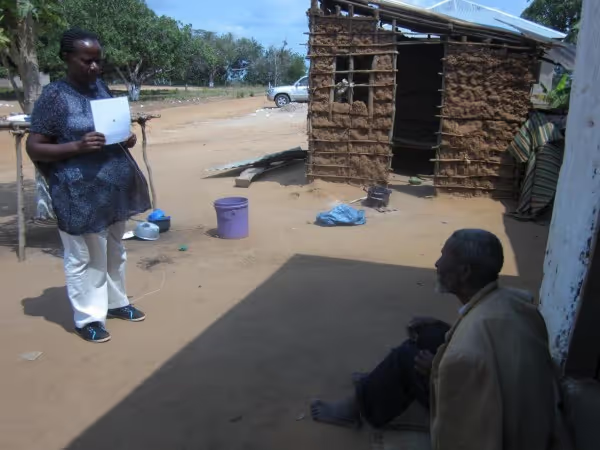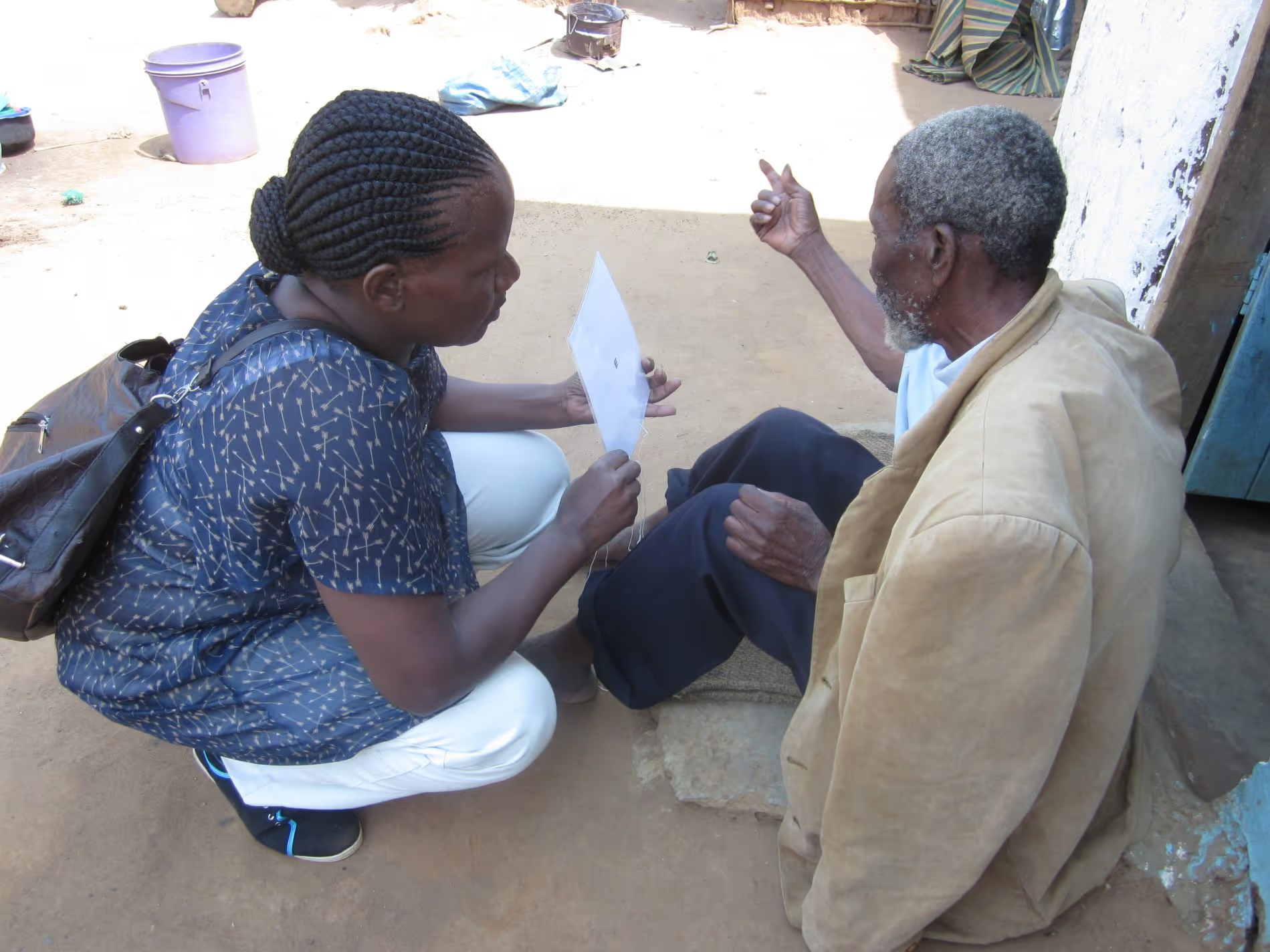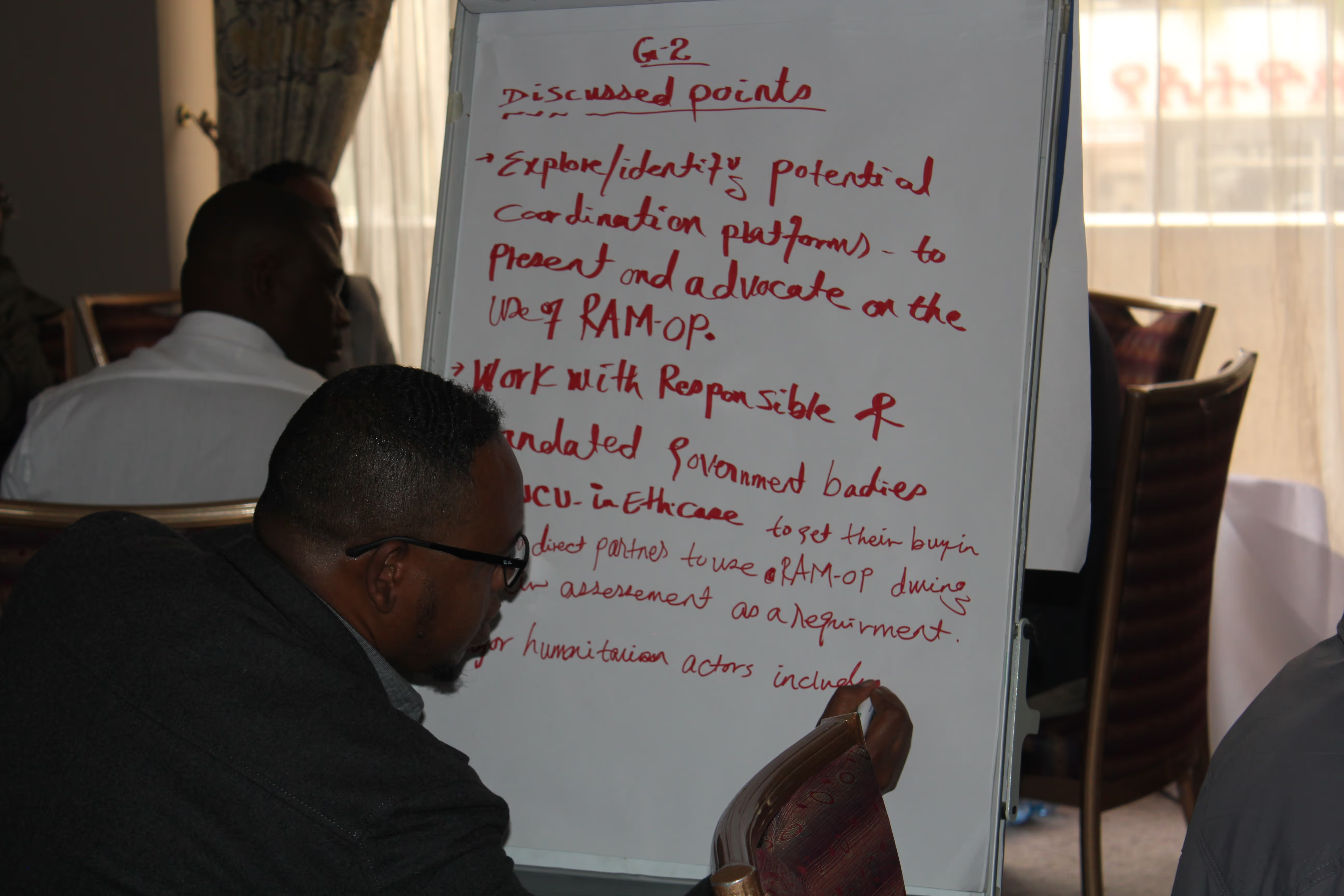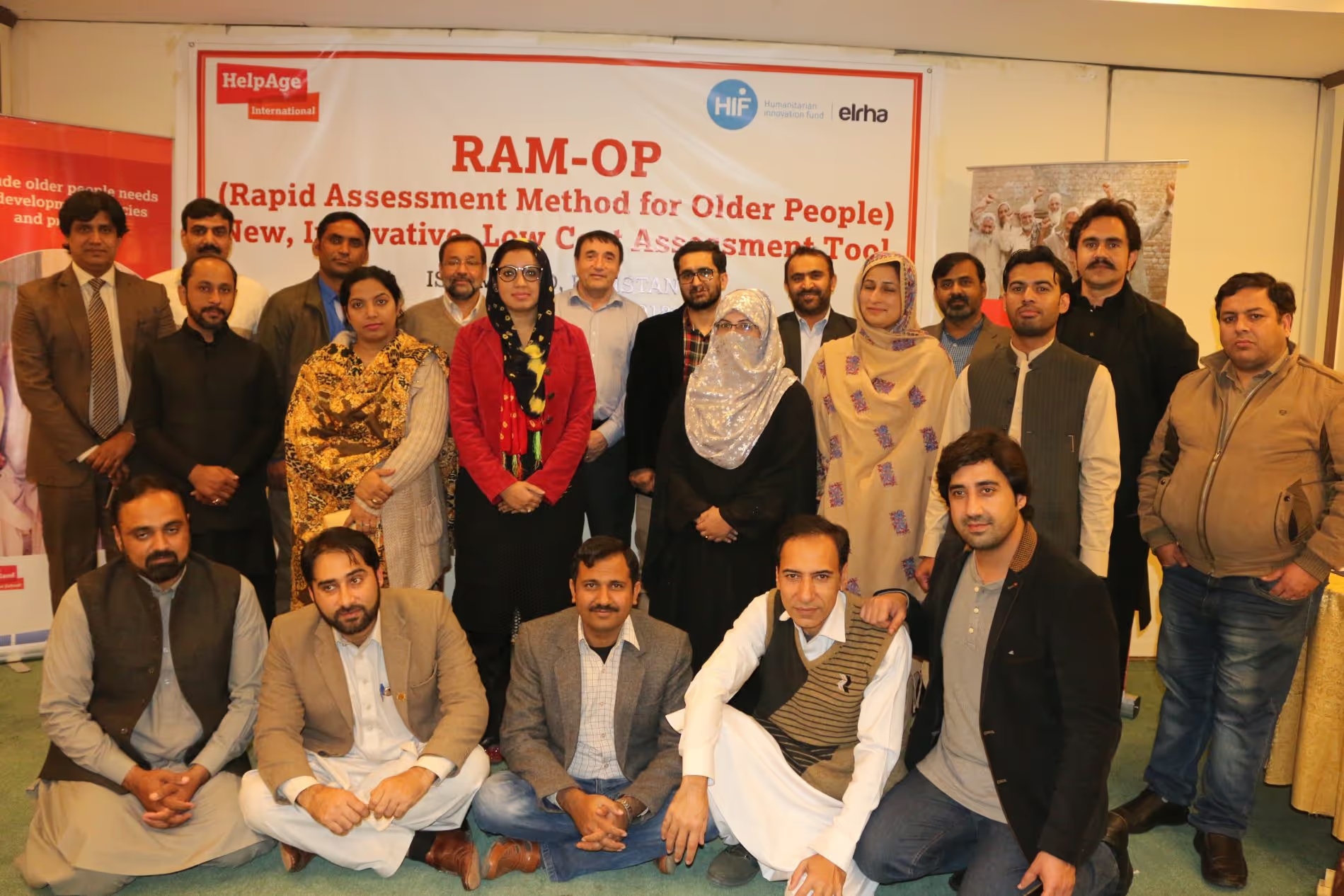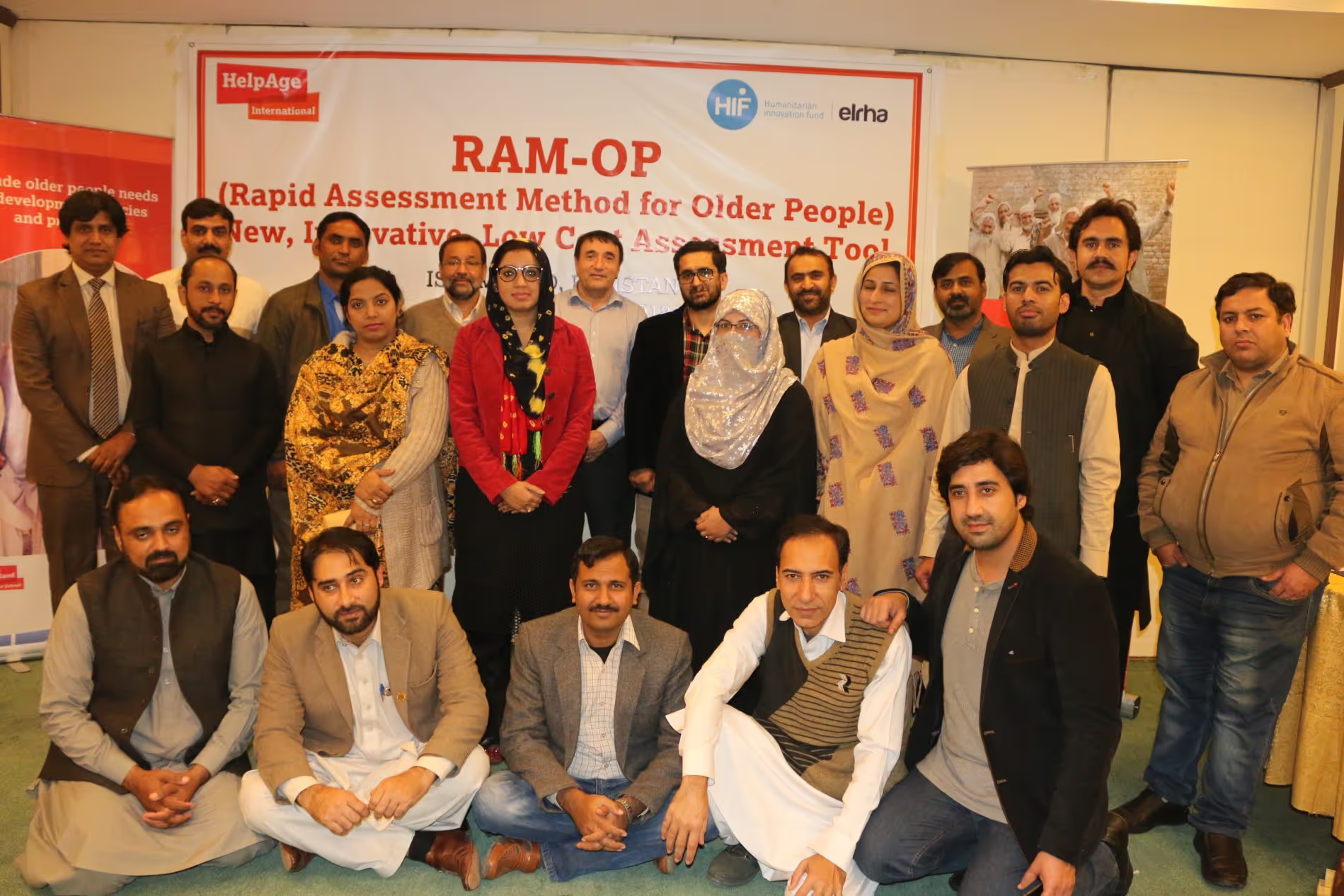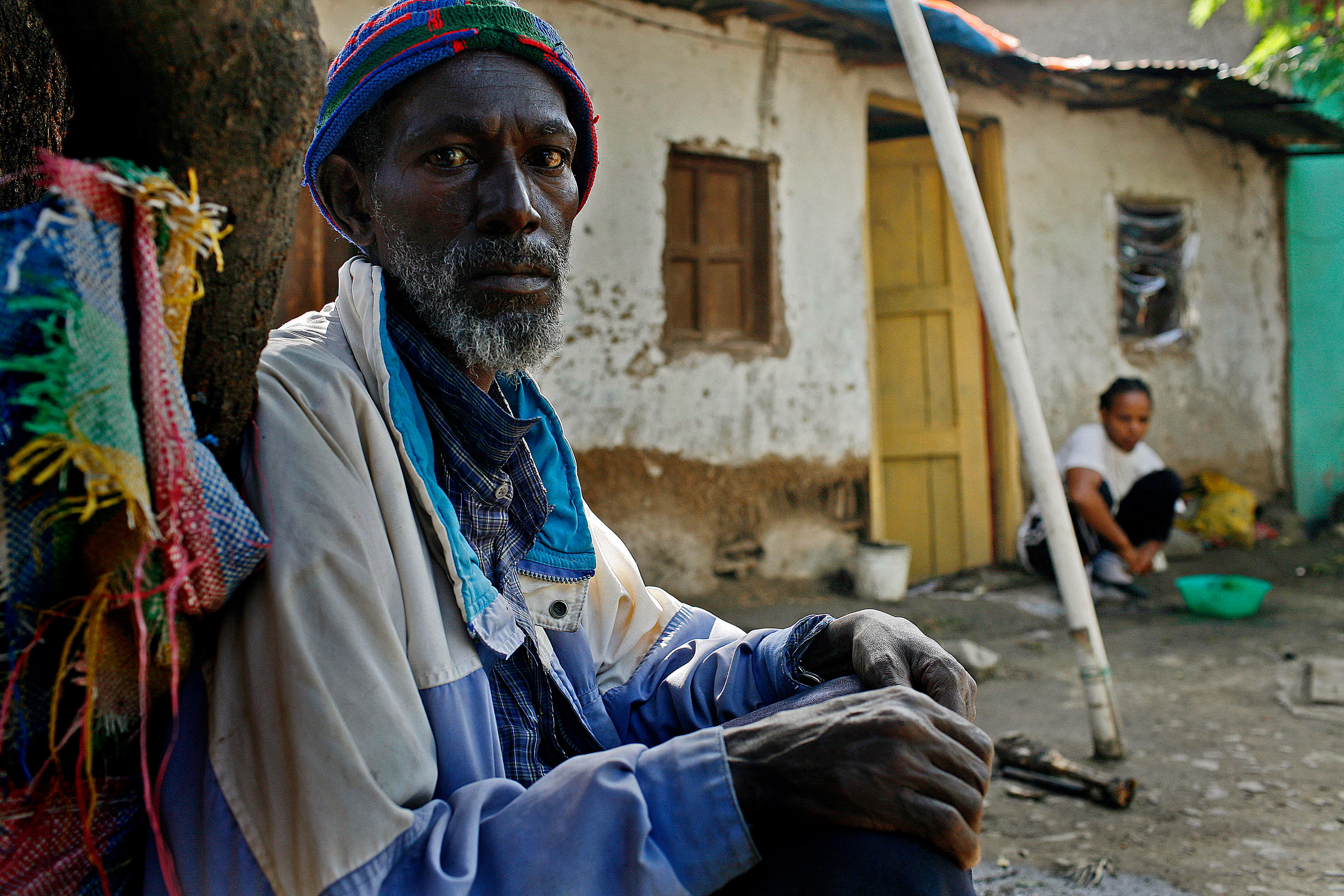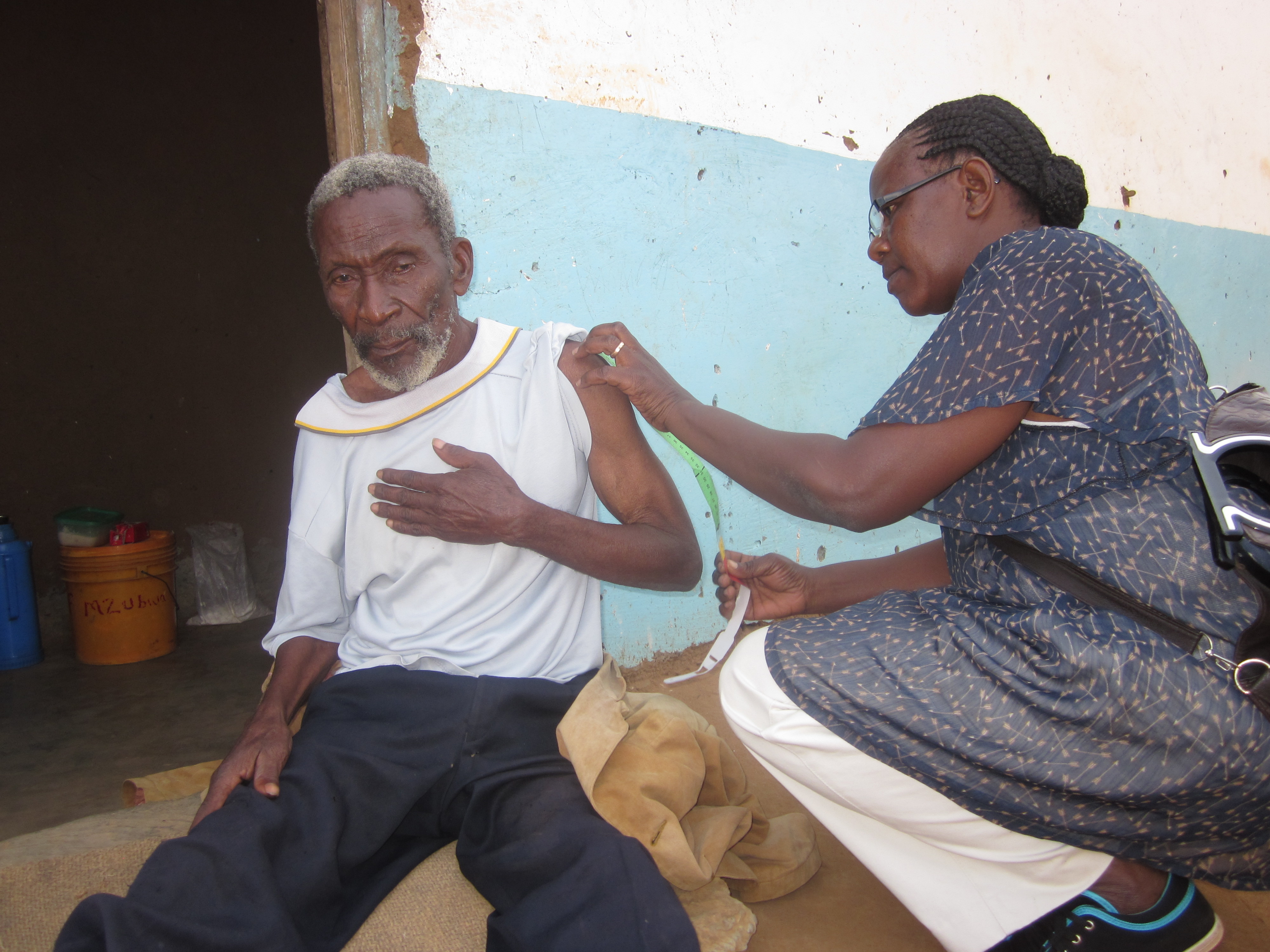RAM-OP (rapid assessment method for older people)
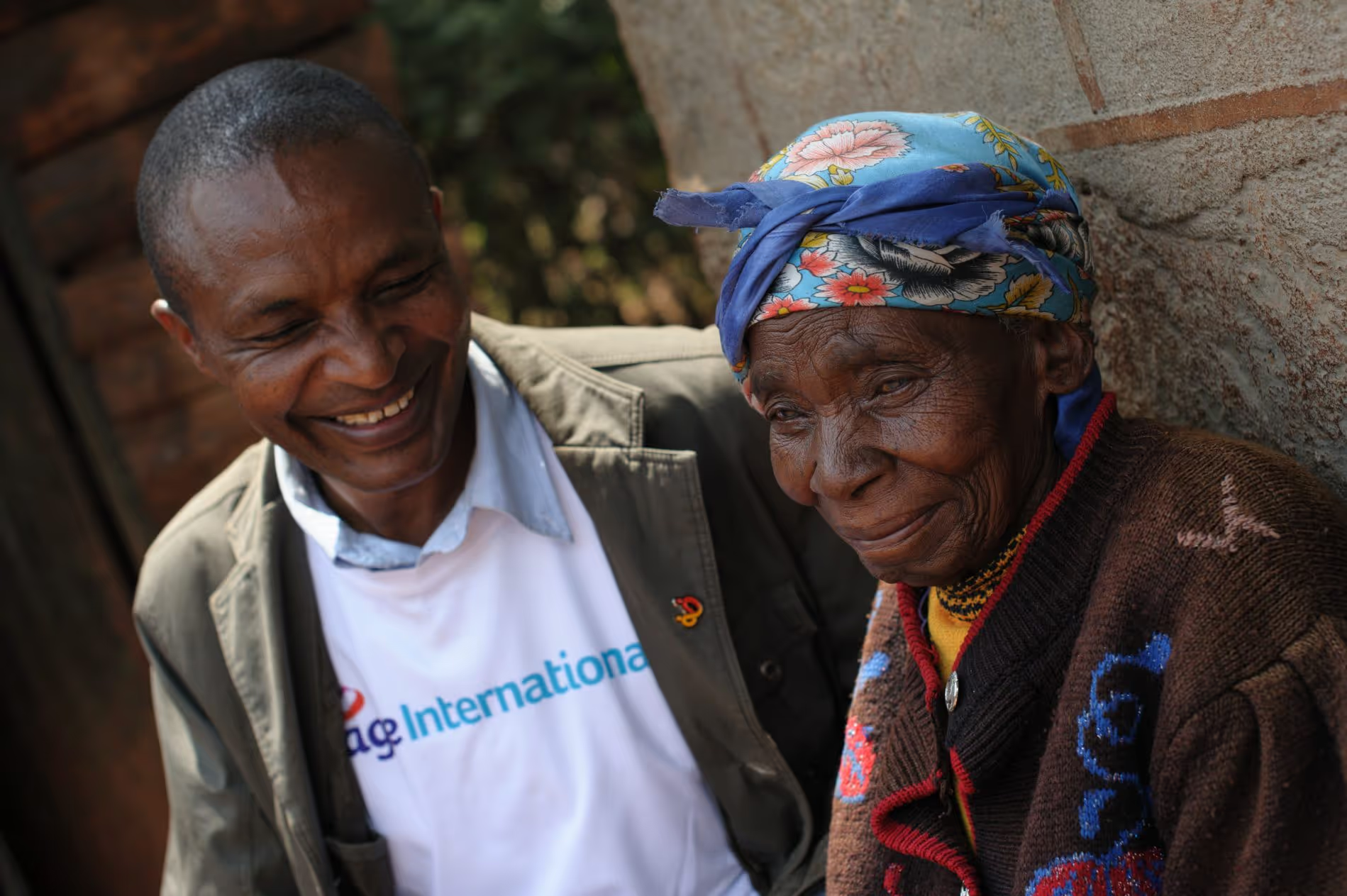
Project overview
RAM-OP is a rapid assessment method for measuring the nutritional status and needs, and other related factors that affect older people in humanitarian situations. It includes a questionnaire, a sampling method, and software for data analysis. It allows humanitarian workers to gather evidence on the nutritional vulnerability of older people in emergencies and plan the response accordingly.
Countries
Ethiopia
Organisations
HelpAge International UK
Partners
Valid International, Brixton Health
Area of funding
Humanitarian Innovation
Grant amount
First grant=£139,229
Second grant=£49,987
Start date
End date
Project length (in months)
First grant 24 months
Second grant=10 months
Funding calls
No items found.
Topics
Nutrition
Information management, communication and technology
Status
Closed
Project solution
This project offers [specific solution or intervention] to tackle [challenge]. By implementing [strategies, tools, or innovations], the project aims to achieve [desired outcomes]. The approach is designed to [specific actions or methods] to bring about meaningful change in [community, region, or issue area].
Expected outcomes
This project aims to achieve [specific outcomes], such as [measurable results, improvements, or changes]. The expected impact includes [benefits to the target community, advancements in research or innovation, or long-term effects]. By the end of the project, we anticipate [specific changes or milestones] that will contribute to [broader goals or objectives].
No items found.
This innovation was first supported by the HIF in 2015 to be developed and tested. Now, with a Diffusion grant, the HIF continues to support HelpAge scale up their rapid assessment method for older people.
WHAT IS THE HUMANITARIAN NEED?
In emergencies, older people are rarely identified as a vulnerable group by ministries’ officials, non-governmental organisations or donors. Surveys and assessments largely focus on children, pregnant and lactating women. As a consequence, little information is available about the nutritional status and the needs of older people in emergencies, and these needs are thus going unaddressed.
Humanitarian workers often argue that the methodology for assessing the nutritional status of older people is costly and complicated. There is a need for more cost effective methods than the traditional SMART surveys.
WHAT IS THE INNOVATIVE SOLUTION?
RAM as a product is innovative because of its rapidity in providing statistically robust and precise information for humanitarian programming compared to currently used assessment methods.
Innovation Phases Description:
- Performance of RAM will be tested alongside that of traditional survey methods, specifically that of the cluster method used in SMART. Performance of RAM and SMART will be assessed using criteria adopted from the framework for assessing the appropriateness of assessment methods proposed by Sacket and Holland (1975), Beaton and Bengoa (1976) and Jelliffe and Jelliffe (1969) and further developed by Myatt et al (2006).
- After the launch of the RAM-OP and its manual, HelpAge and its partners will monitor the use of this new method by carrying out electronic surveys targeting NGOs and ministries (done through Valid and HelpAge’s networks of local partners and through the Global Nutrition Cluster).
WHAT ARE THE EXPECTED OUTCOMES?
Development &; testing:
A rapid assessment method (RAM) to assess the needs of older people is needed in order to encourage and enable humanitarian organisations to identify the specific needs of this vulnerable group. This survey method would require less time, fewer staff, and would be less costly than the usual methods. RAM-OP can be used in both emergency situations and development contexts. It is hoped that by offering a simplified and cost-effective approach to nutritional surveys, humanitarian workers will be encouraged to consider older people and their needs, and, having a thorough knowledge of their nutritional needs, will implement appropriate feeding programmes targeting older people.
final project report from the first stage of their project. This report provides information on the project methodology, activities, outputs, impact and dissemination of learning.[.slimline-cta_paragraph][.slimline-cta-box]
Scale:
This project aims to ensure that humanitarian and development projects are inclusive of older people through easily-collected, reliable evidence-based data. The project also aims to include RAM-OP in the list of assessment tools for older people used by the World Health Organisation (WHO) and this incorporate it within a sector-wide global, best practice framework. This project will also expand the impact of the RAM-OP tool by translating it into Arabic and French and by developing a digital/mobile application.
No items found.
Project delivery & updates
Stay up to date with the latest developments from this project. Here, you will find details on what has been delivered, resources created, and regular updates as the project progresses. Access key documents, reports, and other materials to see how the project is making an impact.
No resources/updates have been published yet for this project. Sign up for our newsletter to stay informed about upcoming publications and updates!
Join our Newsletter
Resources
RAM-OP: A rapid assessment method for assessing the nutritional status, vulnerabilities, and needs of older people in emergency and development settings
Journal article
LEARN MORE